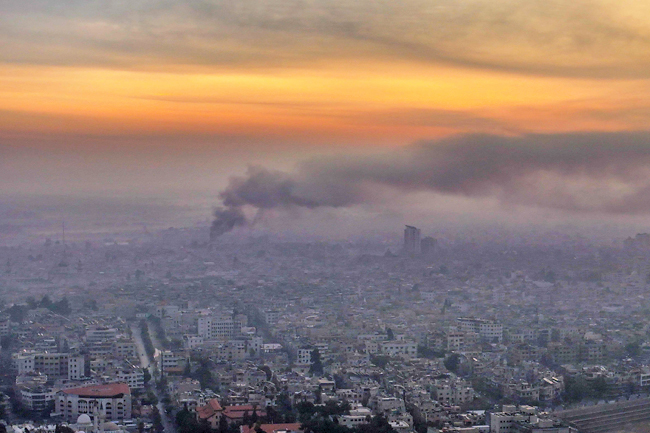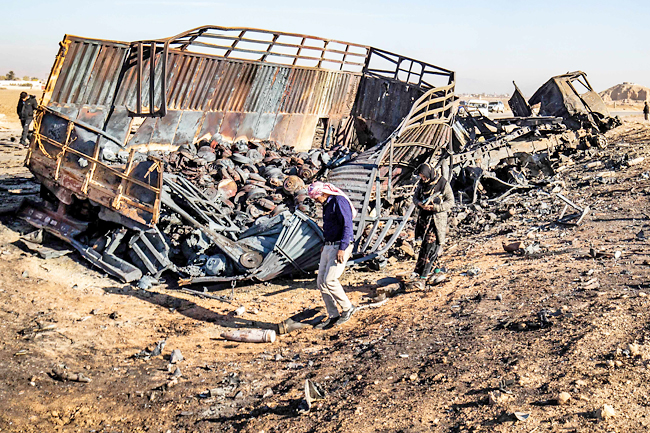DAMASCUS (AFP) – The United Nation (UN) special envoy for Syria called yesterday on Israel to halt its military movements and bombardments in Syria, after a war monitor reported 300 air strikes since the fall of president Bashar al-Assad.
Assad fled Syria as a rebel alliance swept into the capital Damascus, ending five decades of brutal rule by his clan on Sunday.
The leader Abu Mohammed al-Jolani, who headed the offensive that forced Assad out, has begun talks on a transfer of power and vowed to pursue former senior officials responsible for torture and war crimes.
The fall of Assad, who maintained a complex web of prisons and detention centres to keep Syrians from straying from the Baath party line, sparked celebrations around the country and in the diaspora all over the world.
Syria’s civil war killed 500,000 people and forced half the country to flee their homes, millions of them finding refuge abroad.
The country now faces profound uncertainty after the collapse of a government that had run every aspect of daily life in the image of Assad and his father, from whom the ousted president inherited power.
Israel has conducted many strikes on Syria since the civil war began in 2011 with Assad’s crackdown on a democracy movement.
The Syrian Observatory for Human Rights said it had recorded more than 300 Israeli strikes since Assad was deposed.
The UN special envoy for Syria Geir Pedersen yesterday called on Israel to stop.
“We are continuing to see Israeli movements and bombardments into Syrian territory. This needs to stop. This is extremely important,” he told reporters in Geneva.
AFP journalists in the capital Damascus heard loud explosions yesterday but could not independently verify the source or scope of the attacks.
On Monday, Israel said it had struck “remaining chemical weapons or long-range missiles and rockets in order that they will not fall in the hands of extremists”.
The Observatory, which relies on a network of sources around Syria, said Israeli strikes had “destroyed the most important military sites in Syria”. The group said the strikes targeted weapons depots, navy vessels and a research centre that Western countries suspected of having links to chemical weapons production.
With Syria in flux, AFP journalists in Damascus were unable to obtain official comment from the Syrian side on the strikes though they saw the defence research centre had been destroyed.





